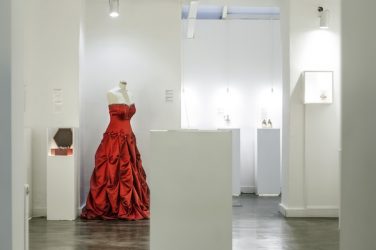Body positivity, rhinoplasty, a trip to Turkey? E&M author Alara Yılmaz explores the paradoxical rise of plastic surgery in the age of Tiktok and body positivity, the value attributed to “beauty” and the pressure young women have to change themselves.
Body Positivity is booming, and so are cosmetic surgeries like rhinoplasties, also known as nose jobs. But how do the two align?
In an age where body positivity is being preached all around, we can still observe a rise in cosmetic surgeries globally, especially among young women and teenage girls. This can be linked to a number of reasons, with one of the main ones being the role of social media. While young people may not be seeing unachievable and unrealistic “ideal” bodies in magazines anymore, the trend has not fully disappeared. It has simply changed places, and is now found on social media platforms such as Instagram or TikTok. Users are constantly bombarded with images of the “perfect body”, through filters that change face structures, and influencers that advertise rhinoplasties. This results in teenage girls growing up and imagining their “ideal” and “improved” selves based on these standards as one-third of TikTok users are estimated to be under the age of 19. In the comment sections of videos with the hashtag rhinoplasty (#rhinoplasty) you can find many teenage girls tagging their friends and desperately waiting to turn 18 because they want to be fully eligible for a nose job themselves.
We can observe teenage girls in Europe or the United States specifically flying to Turkey or Iran for the procedure, where you can get a broad range of plastic cosmetic surgeries for relatively little money.
Obviously, cosmetic surgeons have noticed this development, if not also contributed to it. Plastic surgeons have started specifically putting out advertisements on social platforms with susceptible users and cooperating with fashion and lifestyle influencers that have a young following. And while the demand is rising, the prices are sinking drastically, making such procedures more accessible for the masses. We can observe teenage girls in Europe or the United States specifically flying to Turkey or Iran for the procedure, where you can get a broad range of plastic cosmetic surgeries for relatively little money.
But what does this development expose?
A critical view of this development is crucial. First, we know that every surgical intervention has health risks. A rhinoplasty, also commonly referred to as a “nose job”, is a surgery that changes the shape of your nose. While a rhinoplasty can be used to improve breathing, many young girls undergo the procedure to simply change the appearance of their noses. Common health complications after the surgery include swelling and bruising around the nose and cheeks, as well as light bleeding and infections. Ironically, a rhinoplasty can also lead to airway problems and issues with breathing, due to the narrowing of the nose bridge.
If you don’t like something about yourself, you can simply change it!” This notion is dangerous. Especially if it is used in a pseudo-feminist context.
Second, but not less important, is the message that it conveys: “If you don’t like something about yourself, you can simply change it!” This notion is dangerous. Especially if it is used in a pseudo-feminist context. It falls under the category of superficial sayings that are deeply flawed. Of course, it is essential to teach girls and women that they are capable of making their own decisions about their lives and their bodies. However, it is necessary to leave the surface level of discussion and ask why such operations are needed for women to feel “pretty” or “beautiful”. We should teach them to feel valued at all times, not only “post-nose-job”.
Maybe we do not only need to change our conception of beauty, but also its significance. Trend cycles and beauty standards regarding the female body are changing rapidly and women are always urged to scrutinize and change their bodies. I want to point out something crucial: female bodies are not trends. Female body parts are just body parts. Women are not meant to keep up with varying expectations towards their bodies, especially not if these require surgical intervention.
But where do these standards even come from? When looking at the “ideal nose”, we can easily see its origin. The “perfect nose” is small and white. It’s not unusual for our beauty standards to be revolving around Western/European standards, it’s actually the norm. The seemingly harmless preference for a “tiny nose” results in millions of girls resenting their authentic bone structure, whether it is Middle Eastern, African or Eastern European. And even worse, if you do not conform to the beauty standard, whatever you do, you cannot win. Either you are pitied because you are not conventionally beautiful, or you decide to change your natural features through surgery, you are shamed, often also by other women, for being superficial and a bad feminist. However, to be condescending towards a woman with a nose job is as anti-feminist as the nose job itself.
The takeaway
Let us teach women and girls that their worth is not linked to their looks. And that their thoughts and ideas are valuable regardless of the size of their nose!
I am not saying that everyone needs to suddenly change what they find beautiful. I am simply urging for “beauty” to not be the number one priority when it comes to value. The keywords here are body neutrality and inclusivity. Changing beauty standards is necessary, but it is a different discussion. Being perceived as “pretty” should not be the main goal. Let us teach women and girls that their worth is not linked to their looks. And that their thoughts and ideas are valuable regardless of the size of their nose!
Photo by Trude Jonsson Stangel on Unsplash





